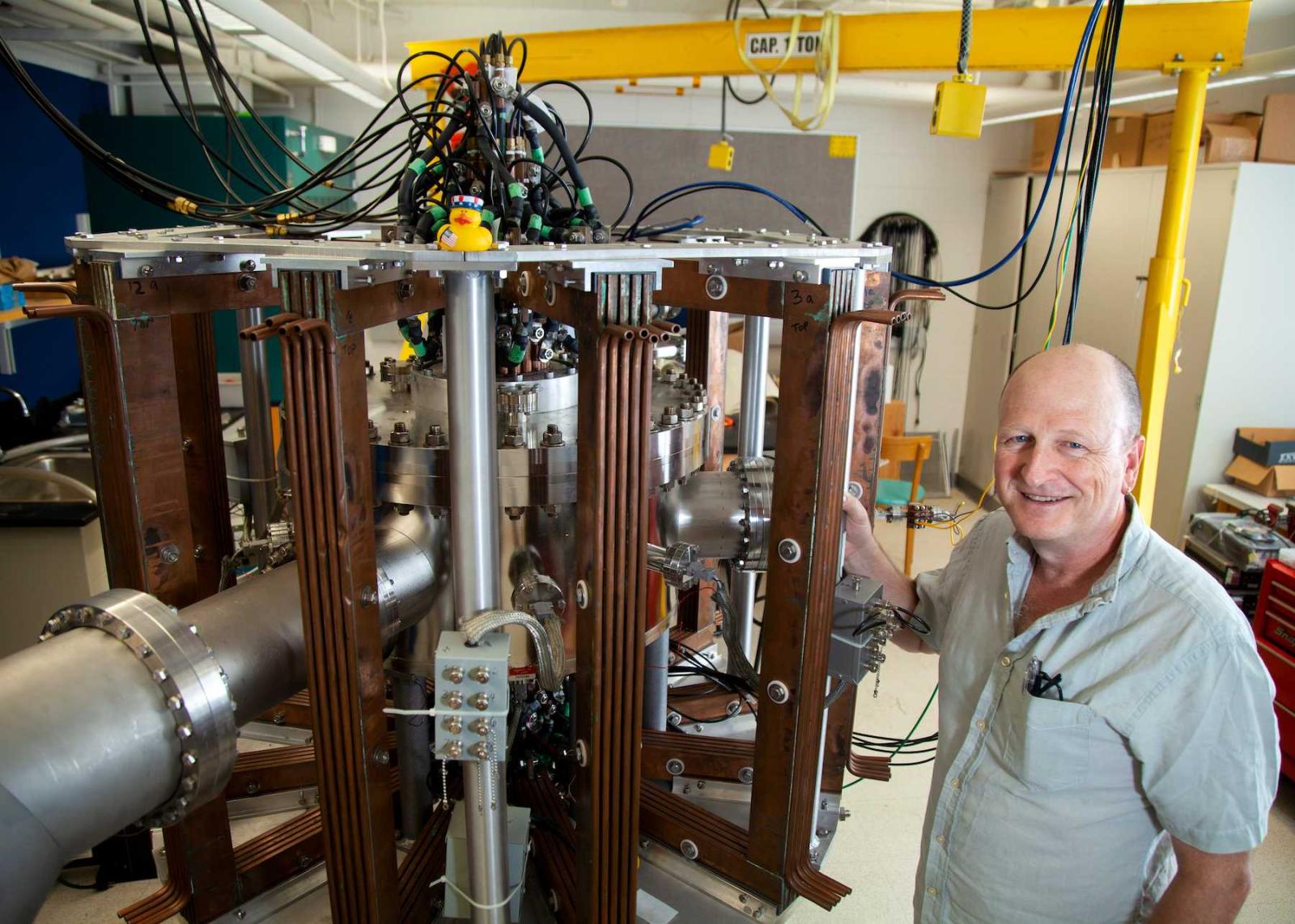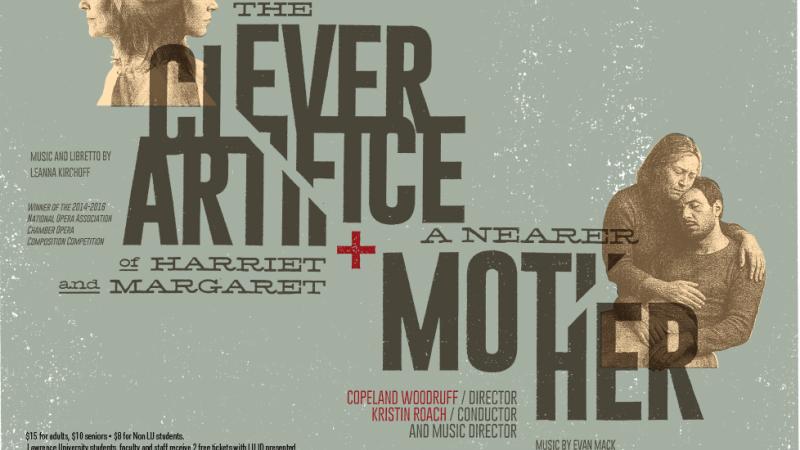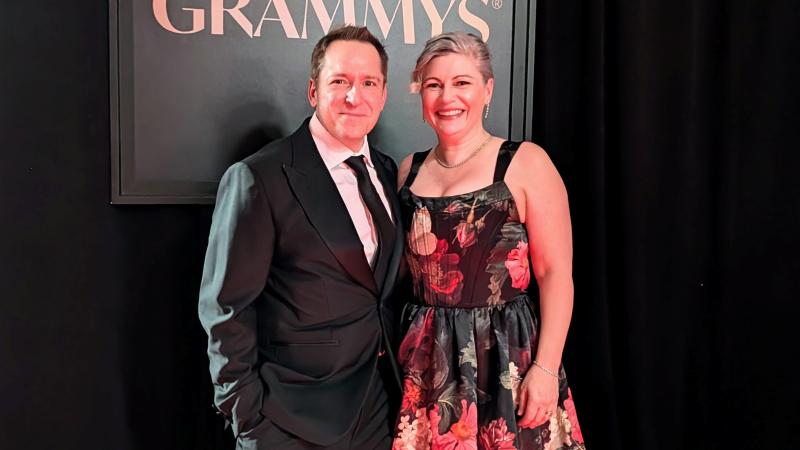Lawrence University Professor of Physics Matthew Stoneking is the recipient of a six-figure grant from the National Science Foundation, funding that will allow him to expand his research on thermal equilibrium in non-neutral plasmas.
The three-year, $431,200 grant will support, among other things, a full-time post-doctoral research assistant for two years, internship support for Lawrence students, equipment and lab supplies to build a new experiment in Youngchild Hall, and travel support to work with collaborators at the Max Planck Institute for Plasma Physics in Germany.
“Receiving the grant is really satisfying because it’s a competitive process, and it means my work has been positively reviewed by my peers in the field,” said Stoneking, an experimental plasma physicist who has been on the Lawrence faculty since 1997. “I have been part of the NSF proposal review process a few times and I know what it’s like and the kind of scrutiny a proposal receives and the limited funding that’s available to fund these projects. It’s gratifying that we can bring some money into Lawrence to give students research experiences and to allow me to continue to be an active contributor to my professional research field.”
Stoneking, who spent most of August at the Max Planck Institute in Germany, has devoted much of his recent professional life to studying the physics of non-neutral plasmas and how they thermally equilibrate.
Explore the laws of the universe through individualized research, multidisciplinary courses, and collaborative experiences
Think of a hot cup of coffee left on a desk eventually coming to the same temperature as the air in the office—that is the process of thermal equilibration, Stoneking said. Laboratory plasmas—ionized or electrically conducting gases—are typically much hotter than the container—usually a vacuum chamber with a magnetic field—in which they are confined. The difference in temperature is a source of instability that is seen in almost all plasma experiments and causes the plasma to be lost to the container walls as part of the process of thermal equilibration. Non-neutral plasmas are unusual because they can, in special circumstances, be well-confined at the same temperature as their surroundings.
Stoneking’s project seeks to explore whether such well-confined states can be achieved in more complicated magnetic traps. This will help to understand the basic physics that leads to thermal equilibrium and allow scientists to create other interesting plasmas such as matter–antimatter plasmas.
“The theorists tell us if we can make the mass of the negatively and positively charged particles the same, there’s a chance we could make a very quiet, well-confined plasma that would not exhibit these wild instabilities,” Stoneking said. “Our aim is to test that prediction and predictions related to that kind of system.”
This continues research Stoneking has already been deeply involved with, both in the labs of Youngchild Hall and in Germany. The project started in Germany in 2012, with Stoneking joining that research team in 2015.
The new experiment that will be built with support from the NSF grant will happen on the Lawrence campus. In addition to the needed equipment, the funding will allow two Lawrence students to work in the lab each of the next three summers.
Those students will get hands-on experience in the research, may have opportunities to join Stoneking at the Max Planck Institute in Germany, and will get opportunities to present their work at physics conferences.
“That’s vital preparation for students who have ambitions to go on to do graduate school in physics or engineering,” Stoneking said. “Having some research experience is key.”
Having a full-time post-doc research assistant join the team at Lawrence for the next two years is also significant, he said. It will enhance the productivity of the project and will provide additional guidance to student interns.
“We’ll have more going on that students will be aware of and able to participate in,” Stoneking said. “To have another person here with a Ph.D. in physics and just out of grad school, that will bring a lot of energy and enthusiasm.”
Stoneking, who holds a bachelor’s degree from Carleton College and a doctorate in physics from the University of Wisconsin-Madison, said the Lawrence Physics Department, of which he’s now the chair, has long made it a priority to carve out research opportunities for students. This will only grow those efforts.
“We’ve had good success in our department with sending our graduates on to high-quality graduate programs,” he said. “I think the reason they’ve been competitive is in part they’ve been able to show serious research experience. Some of our students will do research with one of us, but some of them will have a research experience somewhere else through another NSF-funded research program for undergraduates. It’s something we talk actively with them about and encourage them to think about those options. And we make sure we provide them with the kind of classroom instruction, as well as professional mentoring, to give them an idea whether this might be something they want to do.”




